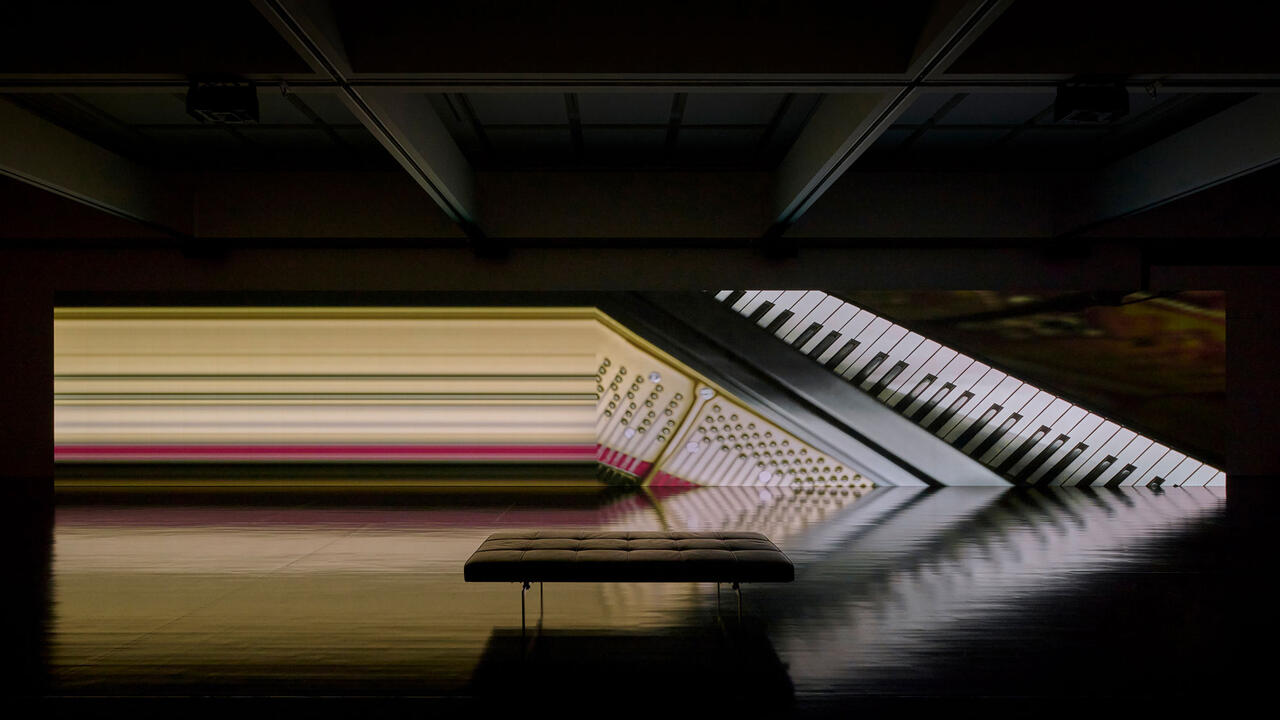Why in an Age of Climate Crisis, the Art World Must Shun Oil Sponsorship
As five Turner Prize winners denounce BP sponsorship, the arts community is rising up to address the climate emergency
As five Turner Prize winners denounce BP sponsorship, the arts community is rising up to address the climate emergency

This Monday 8 July the recently formed group Culture Declares Emergency will hold an all-day forum at the Roundhouse in London for anyone working in any arts sector to gather to share thoughts and ideas on the role for the arts in response to climate change. When this meeting comes off the back of intensified calls for big cultural institutions to drop their oily sponsors – from actor Mark Rylance to five Turner Prize winners (Antony Gormley, Rachel Whiteread, Anish Kapoor, Gillian Wearing and Mark Wallinger) denouncing BP – one pathway for the campaign within the arts is clear: get oil sponsorship out of culture once and for all.
When Mark Rylance announced his resignation from the Royal Shakespeare Company on Friday 21 June, he spoke of his deep frustrations with an industry that has seemingly led the world down the garden path with climate change, which companies like Exxon, BP and Shell knew about three decades ago. Writing in The Guardian, Rylance said: ‘The early 1980s! This is 2019. Half the greenhouse gases in the atmosphere currently warming our planet have been emitted in the last 30 years. BP has made the third-biggest contribution to climate change of any private company in history. It apparently knew three decades ago we were about to cook our planet, and then lit the fire.’ Rylance’s departure is a huge blow for the RSC, and follows over five years of campaigning by BP or Not BP?, an activist theatre group set up to campaign for an end to BP sponsorship of both the RSC and the British Museum. The two cultural behemoths share a sponsorship deal that’s worth a tiny slither of their overall income. The deal used to be shared with Tate galleries – until Tate dropped BP sponsorship in 2016 following a long series of performance interventions by art collective Liberate Tate (a group which I am part of).
This new BP contract comes to an end in late 2021, which is why the groups involved are ramping up their efforts now. BP or Not BP? are also calling on theatre activists to visit and protest at the British Museum’s upcoming BP–sponsored Troy exhibition, saying ‘The British Museum seems to have no sense of irony. The exhibition is a Trojan Horse for BP.’ Their last protest performance drew over 300 participants.
The others in the BP sponsorship ensemble have also recently received attention: the launch of the BP Portrait Award at the National Portrait Gallery was blockaded at the start of June, and days later Extinction Rebellion visited the BP Big Screens put on by the Royal Opera House. Over the past three days almost 80 artists have called on the NPG to end the BP deal, including Gormley, who said: ‘Art is about giving a platform for sustainable futures... [it is] very clear that this is not a part of BPs remit.’ Just last month Portrait Award judge Gary Hume also demanded the NPG drop BP.
Extinction Rebellion also recently refused an award offered to commend the activist group’s powerful branding from the Design Museum in London because of the museum’s insurance company sponsorship, with organizer Claire Farrell explaining that they saw the award as a case of a ‘major cultural institution attempting to ‘art-wash’ the unacceptable behaviours of its financial backers. For Extinction Rebellion to be co-opted by an organization like Beazley runs counter to our movement’s values. We are in the business of refusing business as usual, and the insurance industry, which supports the mitigation of financial loss caused by immoral environmental practices is not something we can have anything to do with.’

This cultural moment raises a fundamental question about ethics in the arts. What can we stomach? Where do we draw the line? And when we look at the climate emergency, how are we compelled to change the whole arts sector to get on the right side of the history that this very same sector will come to write?
The organizations joining the call are many and varied. In the past weeks Architects Declare, a group which includes Zaha Hadid Architects and David Chipperfield Architects, have called for the whole design and building industry to take action within its specific realm. The group referenced the Green Building Council, who point out that the UK’s buildings are the leakiest in Europe. The group said, ‘the twin crises of climate breakdown and biodiversity loss are the most serious issue of our time. For everyone working in the construction industry, meeting the needs of our society without breaching the earth’s ecological boundaries will demand a paradigm shift in our behaviour. The research and technology exist for us to begin that transformation now, but what has been lacking is collective will.’ This call to arms runs in parallel with the arts and theatre organizations who have signed the Oil Sponsorship Free pledge and those that are part of the Culture Declares Emergency group, such as the Royal Court Theatre and Somerset House. New declarers will be announced at Monday’s event, including Complicité, Bournemouth Symphony Orchestra and the Roundhouse, where the forum will take place.
Monday’s meeting is a huge opportunity for people within the arts and design worlds to come together to strengthen campaigns for change in the sector in response to the climate emergency. Oil sponsorship must be a priority campaign target, especially given the upcoming end, or renewal, of the BP deal. For as long as the oil companies benefit from the shiny glow of the country’s most-loved cultural institutions, they will continue to maintain their outdated business model and refuse to do the right thing by the climate. That can only mean either switching to 100% renewables or phasing down oil production completely. Mark Rylance calls on everyone in the arts to take up the mantle of this element of the climate emergency, saying, ‘We are all together in this crisis and we all must change. I am resigning to lend strength to the voices within the RSC who want to be progressive, and to encourage my fellow associates to express themselves, too.’ Let’s hope those present at Monday’s meeting heed his call.
Main image: Culture Declares Emergency action, 2019, Tate Modern, London. Courtesy: Culture Declares Emergency





















